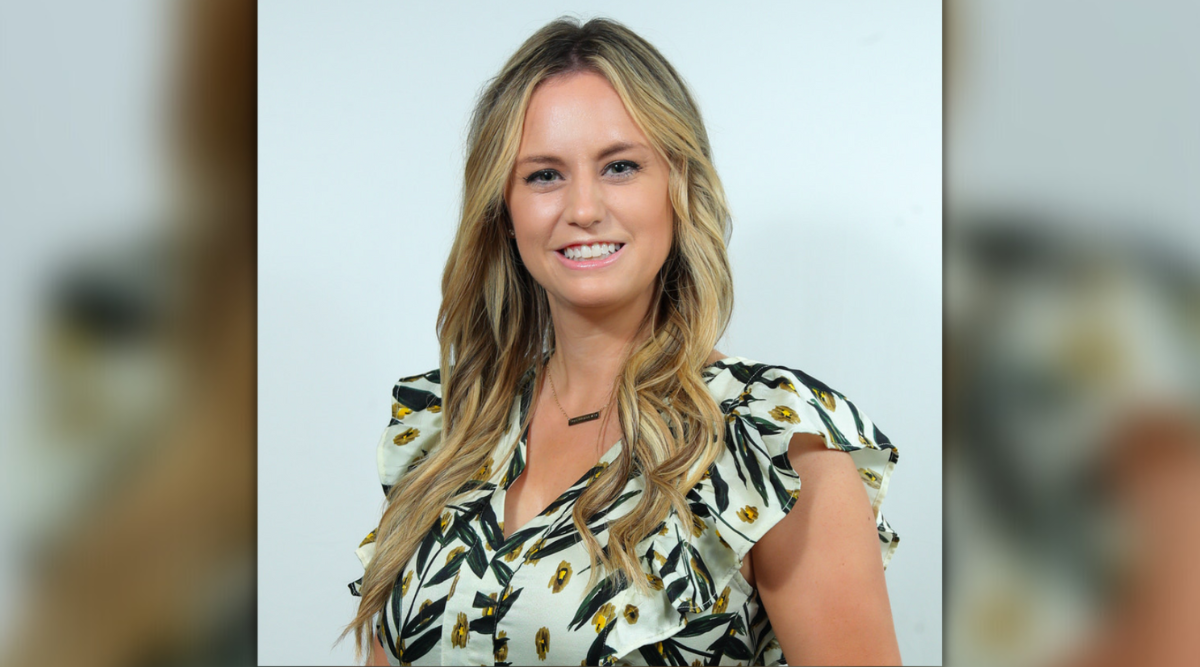By Emma Avila, epackard1@iuhealth.org, writer for IU Health’s Indianapolis Suburban Region
Laura Mrozinski, diagnosed with small cell lung cancer, navigates her treatment journey with her oncologist at the IU Health Joe & Shelly Schwarz Cancer Center.
Laura Mrozinski is a wife, a mother and a grandmother. She has also been battling lung cancer since her diagnosis in 2019.
“I honestly had no idea I had lung cancer,” she says. “I really didn’t feel bad. I worked every day of my life.”
Before her diagnosis, Mrozinski was babysitting her grandchild for the weekend. The next day, she felt off and her hand was shaking so badly that she had difficulty writing a check.
“I kept trying to write the check and my writing kept going uphill.”
She went to her doctor’s office. The nurse practitioner thought Mrozinski was overwhelmed from babysitting. To be safe, a brain scan was ordered. As Mrozinski and her husband drove home, the nurse practitioner called and suggested visiting the Emergency department in case Mrozinski had a brain bleed.
After testing, she was diagnosed with small cell lung cancer.
Small cell lung cancer is a rare and fast-growing form of lung cancer that can spread quickly. Because of this, it is difficult to treat.
Mrozinski sought treatment at another health facility. She initially responded well. Unfortunately, almost four years after her diagnosis, she experienced disease reoccurrence.
This led Mrozinski to connect with Dr. Misty Shields.
Dr. Shields is a thoracic medical oncologist for the Multi-D Oncology Clinic at the IU Health Simon Cancer Center. She also sees patients at the IU Health Joe & Shelly Schwarz Cancer Center in Carmel, which is where she currently sees Mrozinski.

“She was diagnosed five years ago with extensive stage, which is metastatic small cell. This means it had extended out of the chest and into another area, such as another organ,” Dr. Shields explains. “She had radiation and then met with me to discuss other potential treatment options.”
“Dr. Shields, she and I get along very well. She explains everything very thoroughly and very carefully,” Mrozinski adds. “She’s really the best.”
Dr. Shields enrolled Mrozinski in a clinical trial that combined immunotherapy with a pill called Temodar, which works by stopping cancer cells from making DNA.
“Unfortunately, her disease did start to grow, so she had to come off trial. She was switched to another FDA-approved option,” says Dr. Shields. “Her cancer has begun to grow again and spread, so we are looking to get her on another clinical trial.”
The new trial opens next month.
“We have a new class of treatment for small cell. They are called DLL3 BiTEs. They force the immune system to engage with the small cell cancer cell,” Dr. Shields explains. “It’s almost like a glue that brings the small cell close to the immune cell.”
This is just one of the new advancements in how to treat small cell lung cancer. Dr. Shields says the new options are showing exciting data in clinical trials.
“I’m very hopeful that some of these discoveries will be home runs in giving patients options.”
Mrozinski will find out in December if she is accepted into the clinical trial. In the meantime, she remains hopeful.
“You can’t just give up,” she says. “I always want to hope. I want to keep trying. I’ve got to trust the process.”
“Laura really is outstanding,” Dr. Shields adds. “She is encouraging others out there that there is hope.”
Learn more about lung cancer here.
